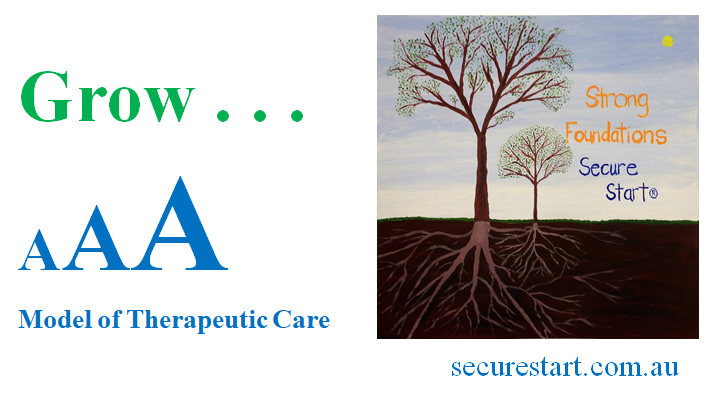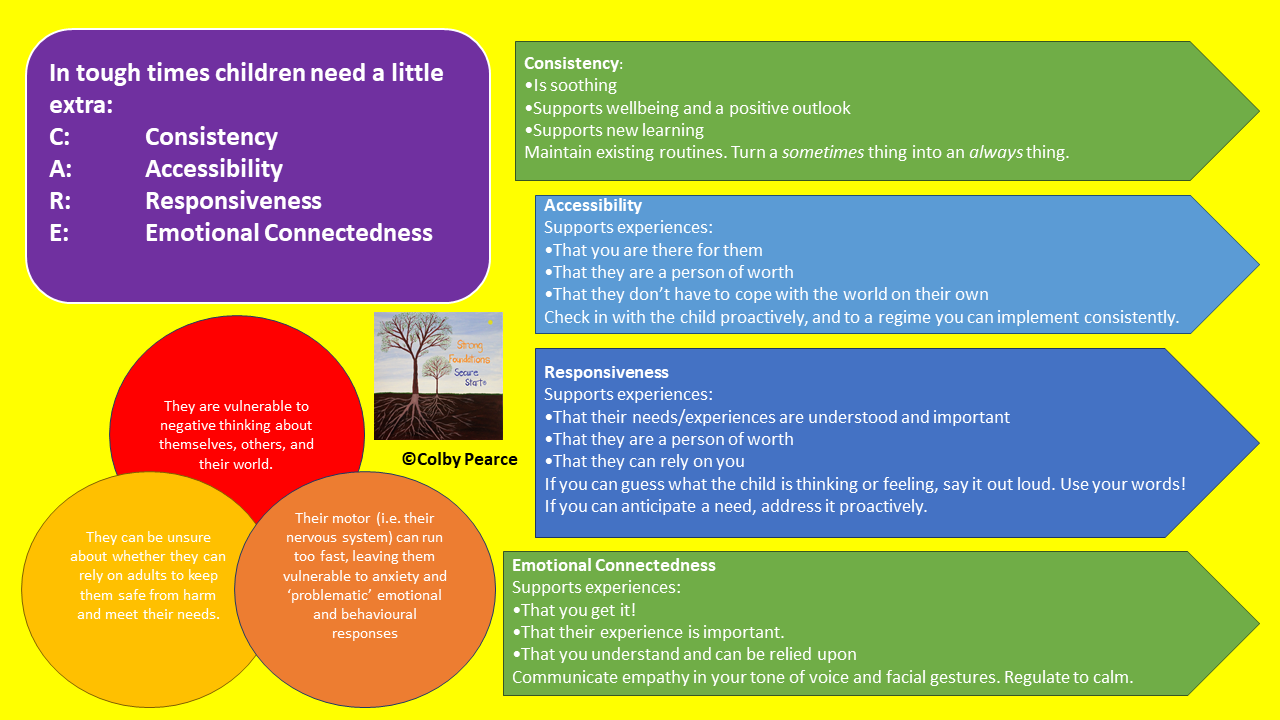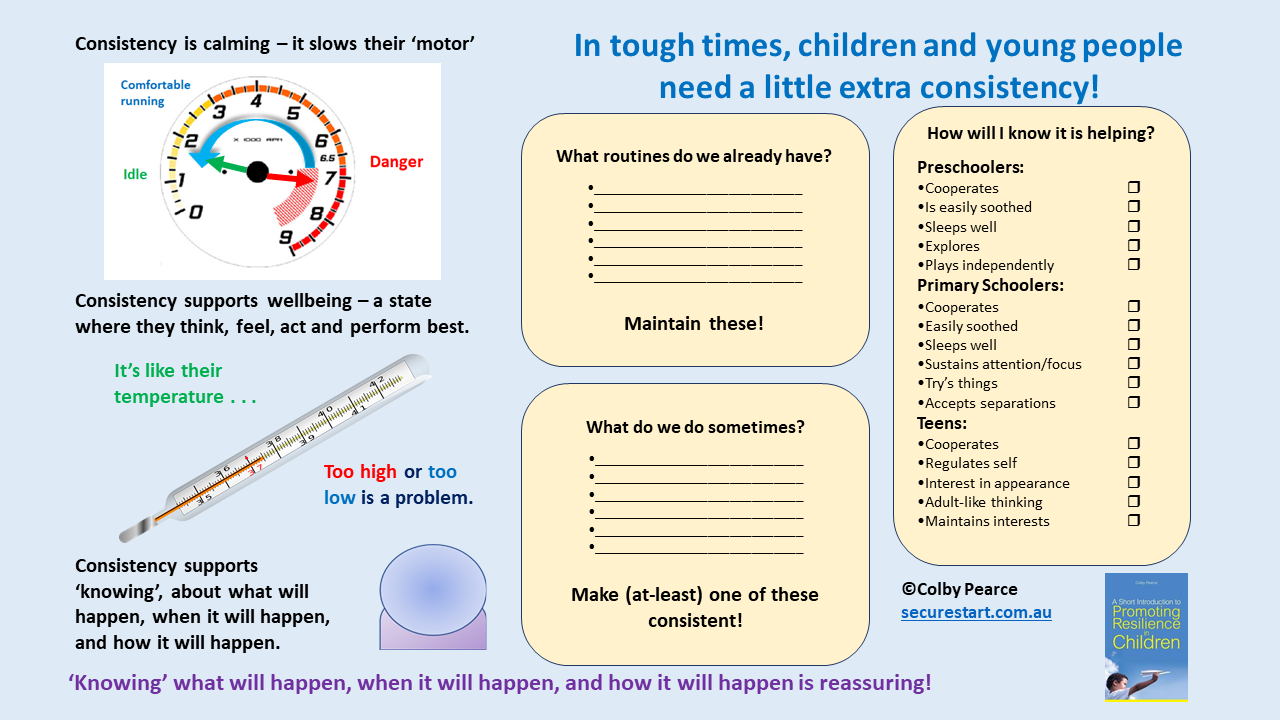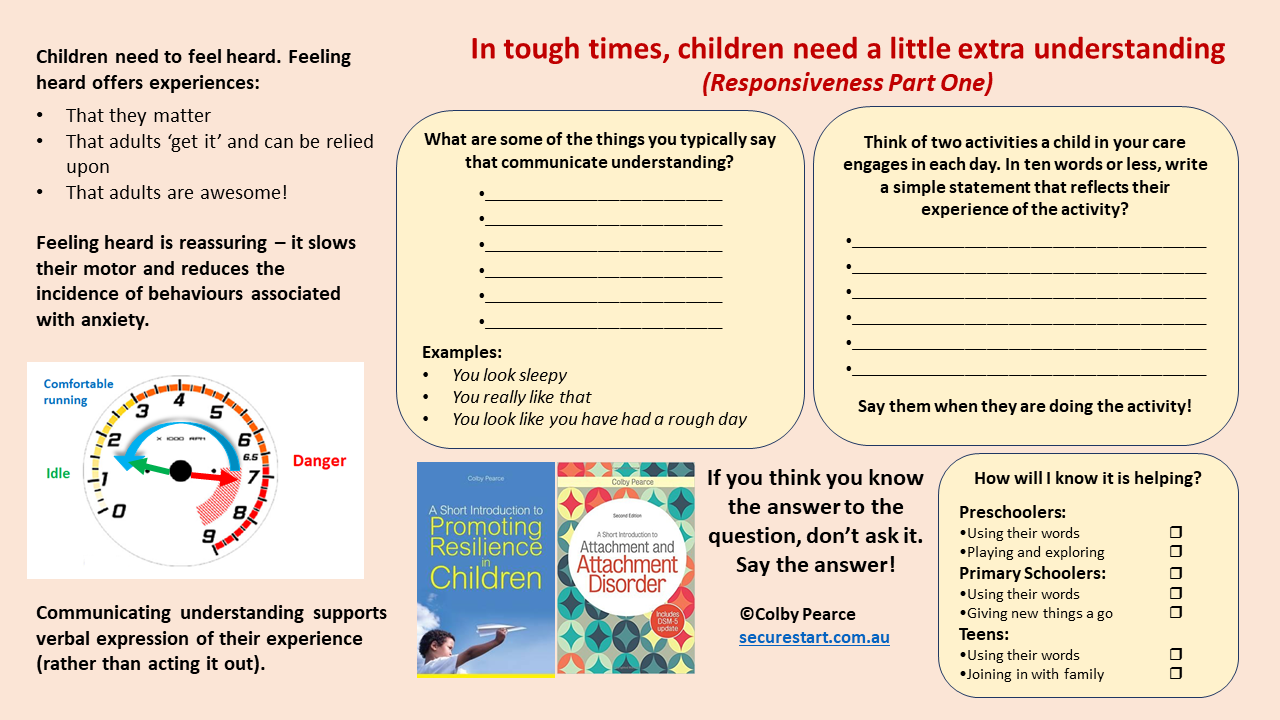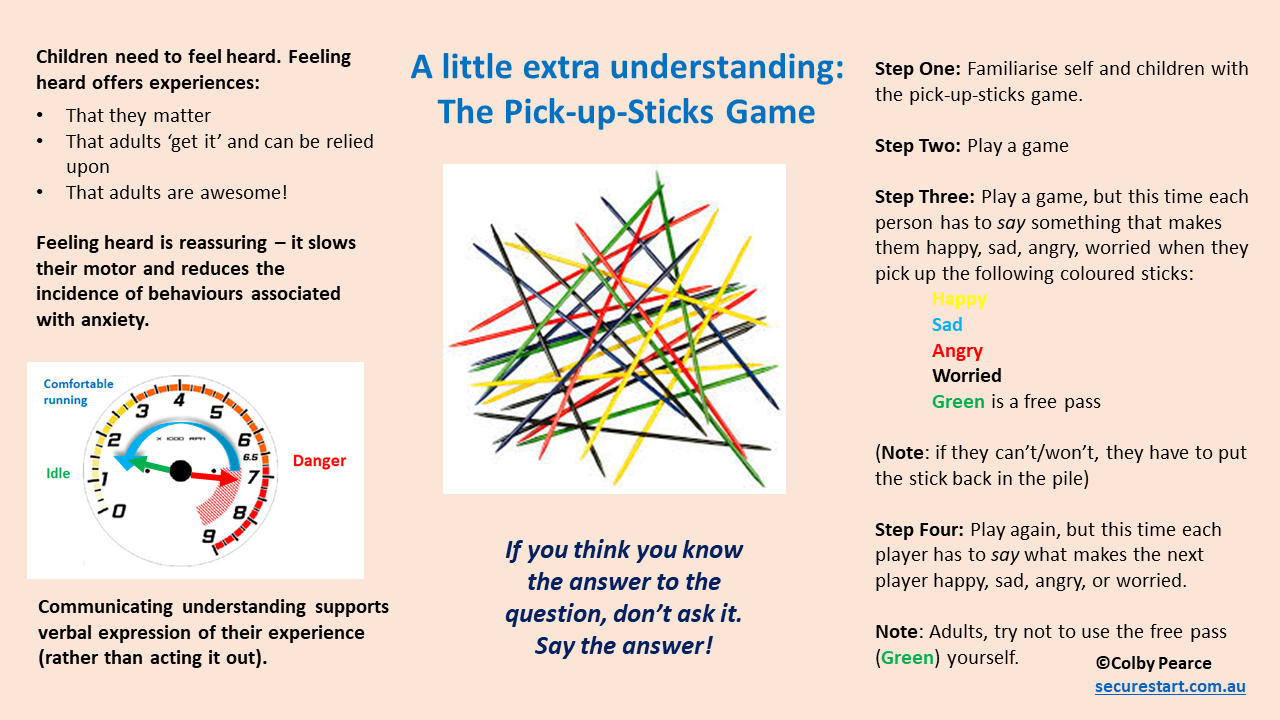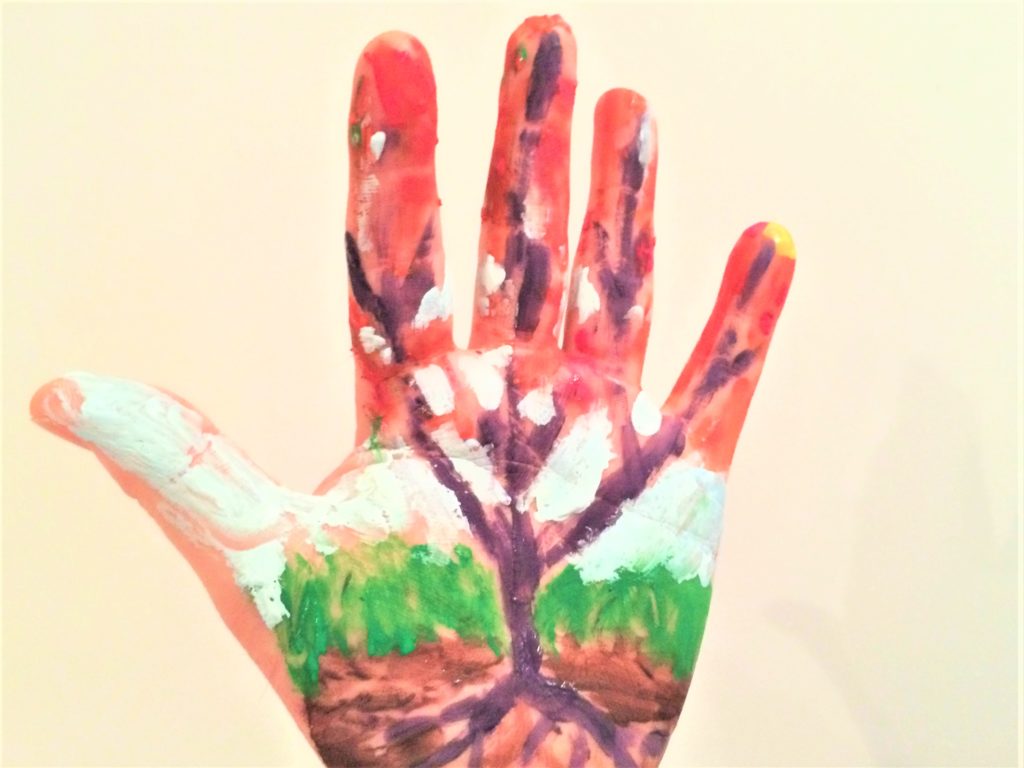
- Grow therapeutic care environments that support a child’s recovery from adverse childhood experiences
- Grow a common understanding, a common language, and a common approach
- Grow confident and competent carers and support professionals
- Grow independent problem-solving
- Grow service-wide fidelity and accountability
The Triple-A Model of Therapeutic Care is a comprehensive approach to the therapeutic care of children recovering from relational trauma and the promotion of trauma-informed out-of-home care services.
Triple-A incorporates two conceptual frameworks derived from psychological science:
- CARE* – an evidence informed framework for understanding how parenting impacts psychological outcomes for the developing child, and what constitutes a reparative care environment; and
- AAA** – an evidence-informed conceptual framework for understanding the impact of relational trauma during the developmental period on the psychological functioning of children and young people.
The two conceptual frameworks are translated into a five-step implementation methodology:
- For carers who are caring for children recovering from abuse and neglect (therapeutic care);
- For carers’ own self-care (therapeutic self-care); and
- For support professionals (being a Triple-A Practitioner); the latter facilitating carer implementation and fidelity to the Model.
There is a strengths focus. Triple-A validates and empowers carers, and professionals who support them. Additionally, there is a focus on the promotion of relational connections that are regulating and support trauma repair. Further, there is a focus on supporting an intentional, reflective approach to therapeutic re-parenting and the delivery of trauma-informed foster care support services, whereby foster carers and support foster care support workers are able to answer three key questions:
There are three training modules for Triple-A:
- Parent/caregiver training module (2.5 days)
- Triple-A Practitioner training module (2.5 days)
- Triple-A Train-the-Trainer Module (5 days – including ‘Practitioner’ training).
Triple-A training can be delivered to foster carers and social work/social care professionals jointly.
There are a number of ways that you can become part of the Triple-A practitioner community:
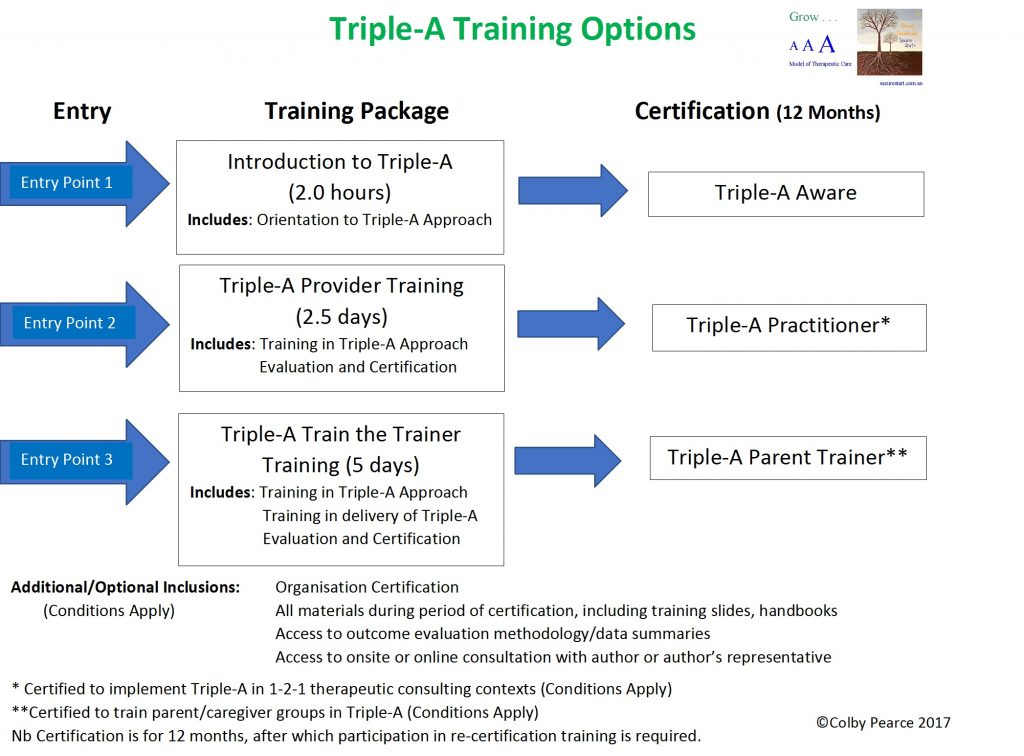
Triple-A is the preferred Model of Care for TUSLA (Child and Family Agency) foster carers in Co. Donegal, Ireland***, where it is in its sixth year of implementation with the support of 12 local trainers trained by Colby Pearce.
The Triple-A Model of Therapeutic Care is complemented by Connected Classrooms, a training program for supporting trauma-responsive practice in schools.
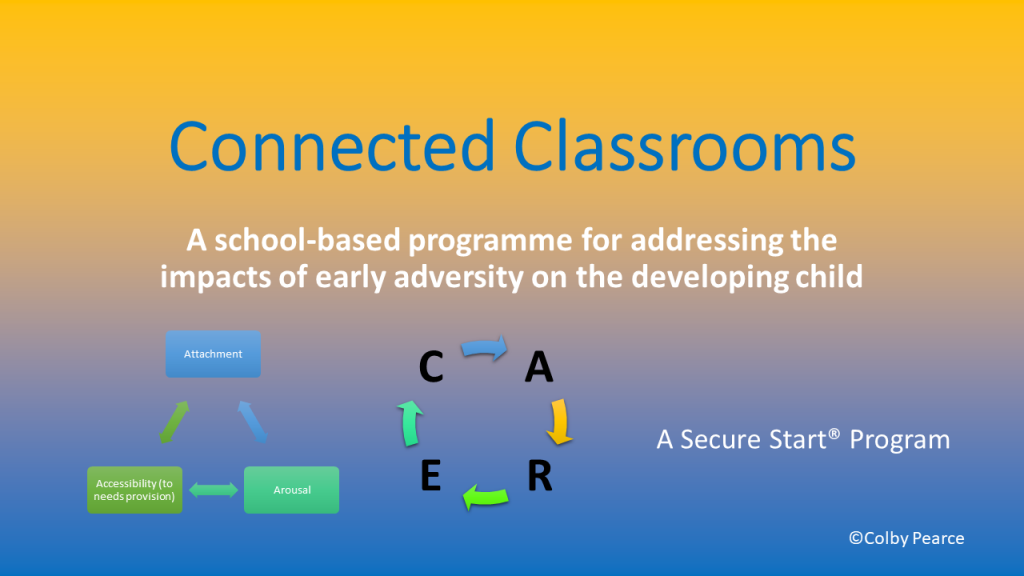
The Triple-A Model of Therapeutic is a Programme of the CARE Curriculum, a comprehensive curricula for supporting trauma-responsive practice where people are recovering from a tough start to life.
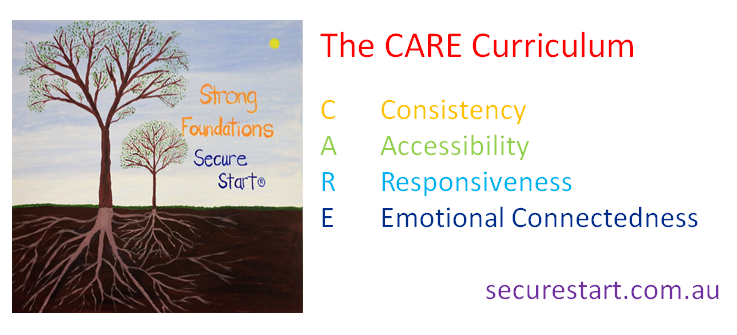
For more information about the Triple-A Model of Therapeutic Care, contact author, Colby Pearce, at colby@securestart.com.au or on the form below.
Contact Colby:
References
*Pearce, C (2016), A Short Introduction to Attachment and Attachment Disorder (Second Edition). London: Jessica Kingsley Publishers
**Pearce, C.M. (2010). An Integration of Theory, Science and Reflective Clinical Practice in the Care and Management of Attachment-Disordered Children – A Triple A Approach. Educational and Child Psychology (Special Issue on Attachment), 27 (3): 73-86
***Pearce, C & Gibson, J (2016), A Preliminary Evaluation of the Triple-A Model of Therapeutic Care, Foster, 2, 95-104
To access a range of free resources suitable for parents/carers, teachers and health/social care professionals, click the image below:
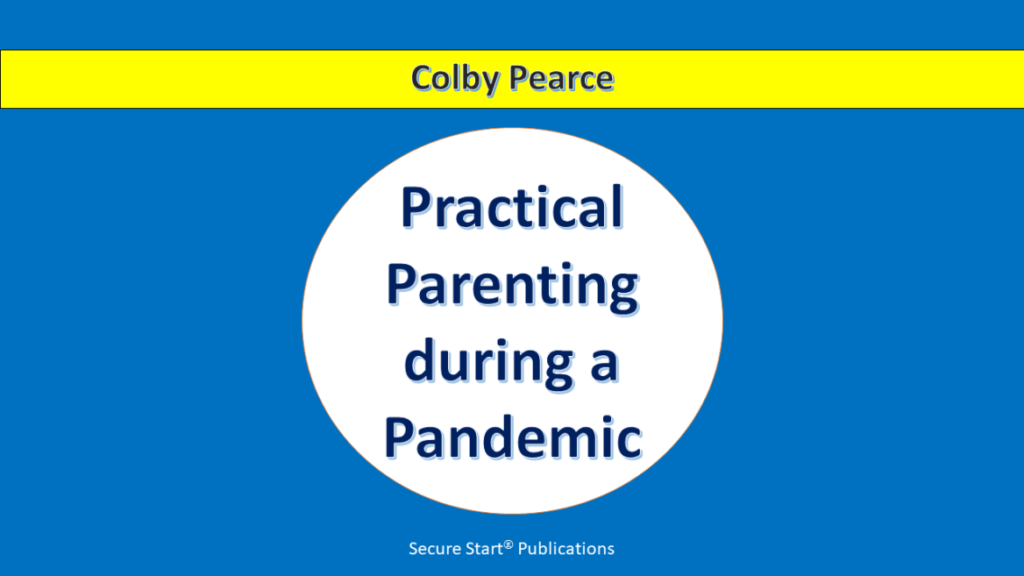
A straightforward guide to keeping things on track in the home during tough times. Includes printable worksheets – see preview below. 18pp
Pay/donate what you want:
Or, download here.
Preview:

